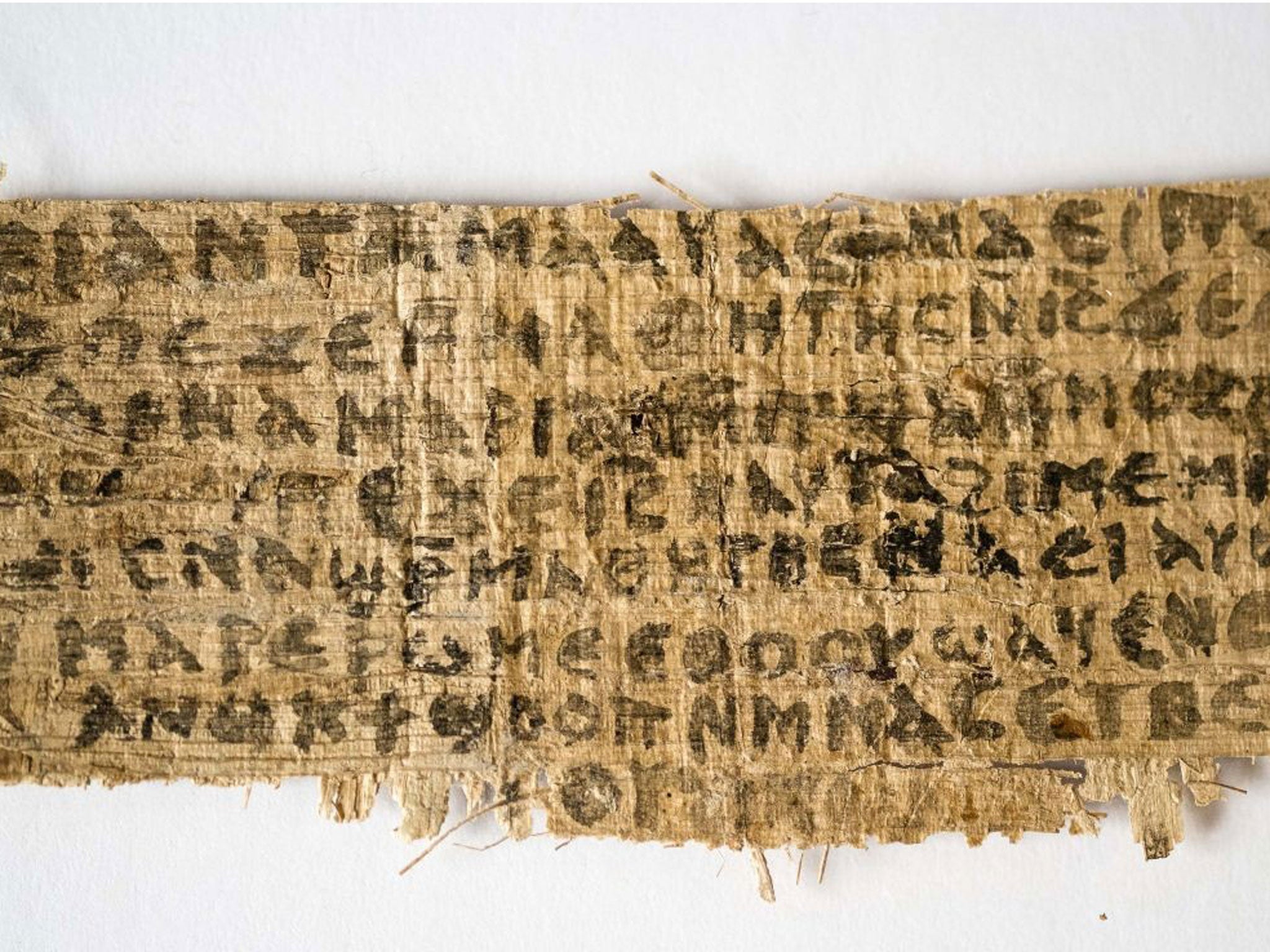'Jesus's wife' fragment is not a fake, scientists claim
Papyrus fragment appears to quote Jesus Christ discussing his wife

Your support helps us to tell the story
From reproductive rights to climate change to Big Tech, The Independent is on the ground when the story is developing. Whether it's investigating the financials of Elon Musk's pro-Trump PAC or producing our latest documentary, 'The A Word', which shines a light on the American women fighting for reproductive rights, we know how important it is to parse out the facts from the messaging.
At such a critical moment in US history, we need reporters on the ground. Your donation allows us to keep sending journalists to speak to both sides of the story.
The Independent is trusted by Americans across the entire political spectrum. And unlike many other quality news outlets, we choose not to lock Americans out of our reporting and analysis with paywalls. We believe quality journalism should be available to everyone, paid for by those who can afford it.
Your support makes all the difference.A Harvard professor is claiming a fragment of papyrus seemingly mentioning that Jesus had a wife is an ancient document and not a forgery, following a series of tests.
The text is written in Coptic and contains a dialogue in which Jesus refers to "my wife."
Karen King, a professor at the Harvard Divinity School, writes in the Harvard Theological Review that the papyrus is almost certainly a product of ancient Christians and probably dates to eighth-century Egypt, based on carbon dating and chemical tests on the ink.
None of the testing has produced any evidence that the fragment is a modern fabrication or forgery, Prof King and her team concluded.
The fragment, which has some legible lines on the front and on the back, contains the words: “Jesus said to them, ‘My wife …. She will also be my disciple.”
James Yardley from Columbia University, and Alexis Hagadorn from Columbia University Libraries, used a technique called micro-Raman spectroscopy to determine that the carbon character of the ink matched samples of other papyri that date from the first to eighth centuries CE.
Malcolm Choat from Macquarie University examined the fragment at HDS and offered an independent assessment of the handwriting.
Prof King first announced the existence of the fragment in September 2012, at the International Coptic Congress in Rome, where she dubbed it "The Gospel of Jesus's Wife."
The use of the word "gospel" refers to the fragment's most distinctive claim that Jesus was married.
Her announcement caused controversy among Christians and religious scholars, many of whom believe the document may be a forgery because of the poor grammar, shape of the handwriting and the ink's colour and quality.
The Vatican newspaper also released an editorial after the announcement declaring it a fake.
However, Prof King has stressed the text does not prove Jesus actually had a wife, but suggests ancient Christians wrote about this possibility.
"The main topic of the fragment is to affirm that women who are mothers and wives can be disciples of Jesus—a topic that was hotly debated in early Christianity as celibate virginity increasingly became highly valued," Prof King said.
"This gospel fragment provides a reason to reconsider what we thought we knew by asking what the role claims of Jesus's marital status played historically in early Christian controversies over marriage, celibacy, and family."
But Brown University Professor Leo Depuydt, in an analysis also published Thursday by the Harvard Theological Review, remains unconvinced and argues the text contains grammatical errors that a native Coptic speaker would not make.
Join our commenting forum
Join thought-provoking conversations, follow other Independent readers and see their replies
Comments